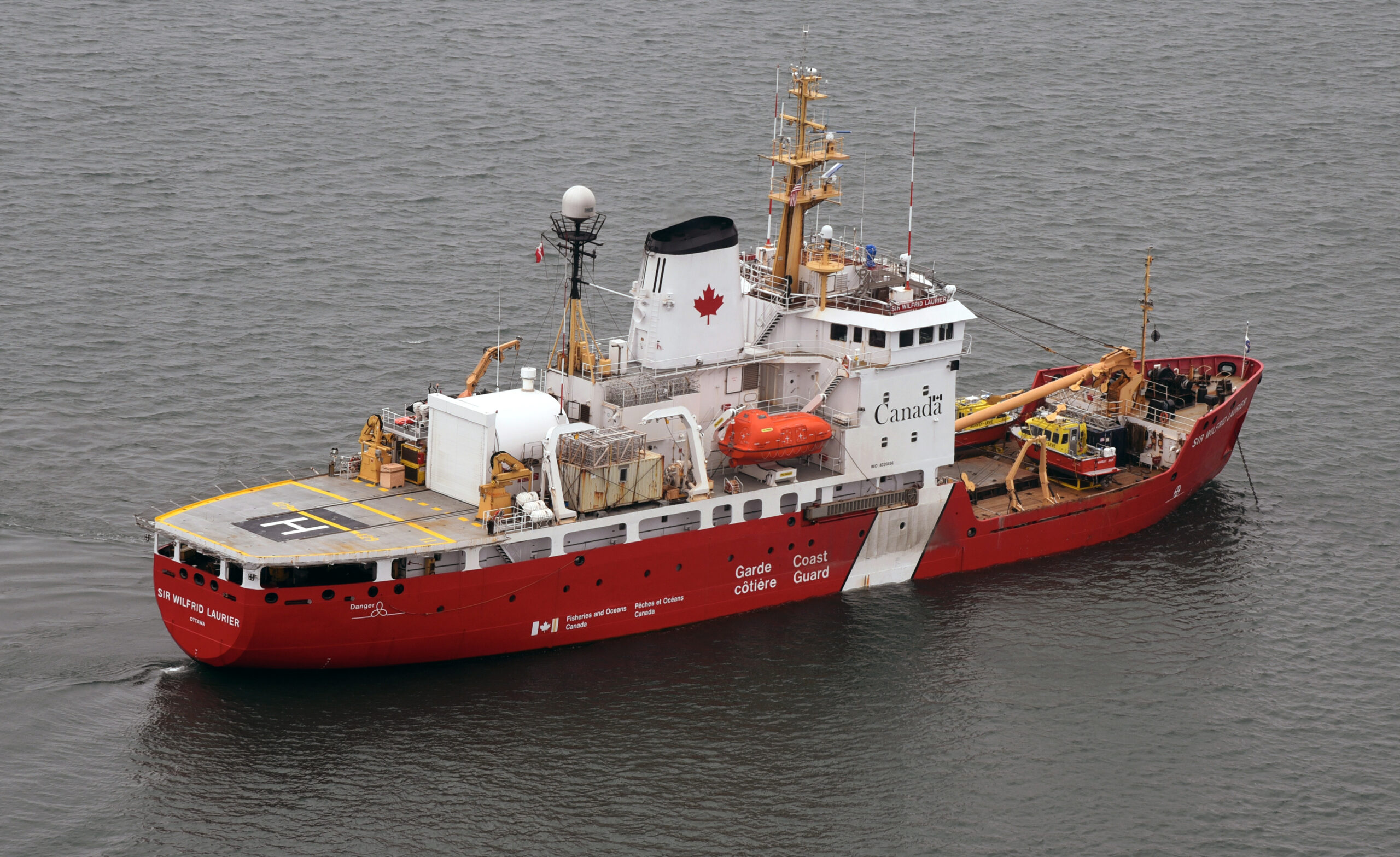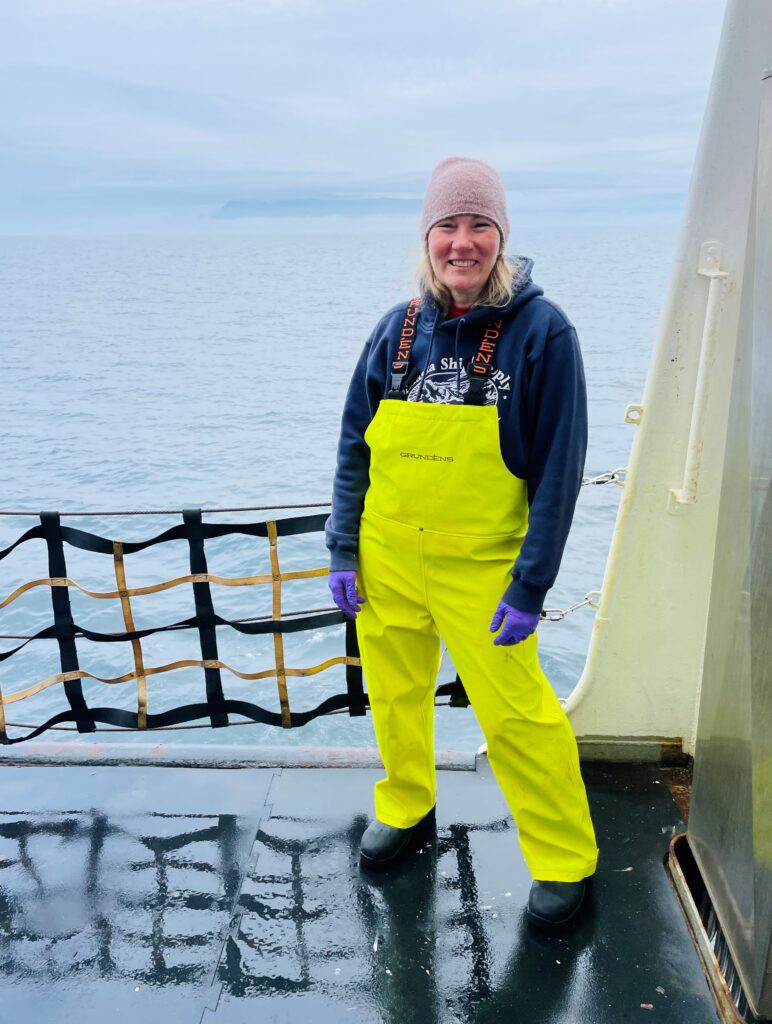Professor Karen Frey prepares for summer field study of decreasing Arctic sea ice

Oceans are warming and sea ice is declining. It’s the consistent and disturbing trend Karen Frey has studied for years in the Arctic region.
“It’s really important to reiterate that climate warming has been rapid and persistent in the Arctic over the past several decades, with profound and fundamental shifts across the region as a result,” says Frey, a polar scientist and professor in the Graduate School of Geography.

On the heels of participating in the National Oceanic and Atmospheric Administration’s 16th Arctic Report Card, Frey is preparing for the Arctic Science Summit Week in March and field research this summer.
As vice chair of the Marine Working Group of the International Arctic Science Committee, Frey is looking forward to meeting international colleagues during the summit. The week serves as a chance to share data and information that deepens the collective understanding of the dramatic impact fast-moving climate change is making on the region.
“Without that international cooperation, we wouldn’t really have the broad understanding that we do,” says Frey.
The summit, which will be held either in person in Tromsø, Norway, or virtually (depending on the severity of COVID) will also offer a chance to determine which learning opportunities and strategies should be funded.
“At least with my experience with Arctic science, there’s an awful lot of thought across the community in terms of what should be the agenda. What are the big unanswered questions that really need to be answered and addressed?” says Frey. “A lot of it is getting everybody on the same playing field in terms of understanding what’s been happening, what science has been discovering, what projects have been successful, what can we learn from all of those things, and how we can use that to move forward.”
In the 16th volume of the Arctic Report Card, released in December, Frey was the lead author of “Arctic Ocean Primary Productivity: The Response of Marine Algae to Climate Warming and Sea Ice Decline” which discusses the timing of photosynthesis and algae blooms that energizes the oceans’ food web. The melt of sea ice in the spring is a driver of that process.
“With climate change, if the timing of when those blooms are occurring starts to shift, that could have cascading consequences for what’s going on with the rest of the food web, which includes humans,” says Frey.
Recently, the Report Card has recorded the impacts of climate change to indigenous communities across the Arctic, with particular focus on food security and algae blooms. Bringing in the human dimension is vital when thinking about climate change, says Frey, who has been a lead author in the annual report since 2011.
Frey was among 111 scientists from 12 nations who compiled the current report card. Significant findings include:
- The October-December 2020 period was the warmest Arctic autumn on record dating back to 1900.
- The snow-free period across the Eurasian Arctic during summer 2020 was the longest since at least 1990.
- The total extent of sea ice in September 2021 was the 12th lowest on record. All 15 of the lowest minimum extents have occurred in the last 15 years.
Frey is preparing for field research this summer on the Canadian Coast Guard Ship Sir Wilfrid Laurier to study the impacts of warming and sea ice decline on marine ecosystems in the Bering and Chukchi seas. The ongoing research is funded National Science Foundation in collaboration with the University of Maryland Center for Environmental Science.
“Some of us are interested in the physical and biogeochemical properties of the water column. Other scientists are interested in the sediments and food web at the seafloor. There are a variety of specific scientific goals (and therefore measurements and sample collections that take place) onboard the ship,” says Frey.
The Bering Sea experienced unprecedented declines of sea ice over the last five years, Frey said. It’s a phenomenon she wants to study more closely.
“I think it’s really important to understand the consequences of that kind of stark drop-off of sea ice,” says Frey. “Seawater temperatures became very warm and the temperatures of bottom waters that come into contact with the seafloor also became very warm. I think one big question is what is the resilience of the ecosystem to events like that? Can ecosystems bounce back if we have a subsequent cold winter or are there long-term consequences of those rapid sea ice decline and warming events?”
Last summer, four Clark scientists were onboard the Canadian ship: Frey, Sophie Spiliotopoulos, an M.S./GIS student, and Clare Gaffey and Anna Zhu, both doctoral students studying geography.
There are slots for at least two Clark students to accompany Frey for the upcoming summer 2022 field season.


